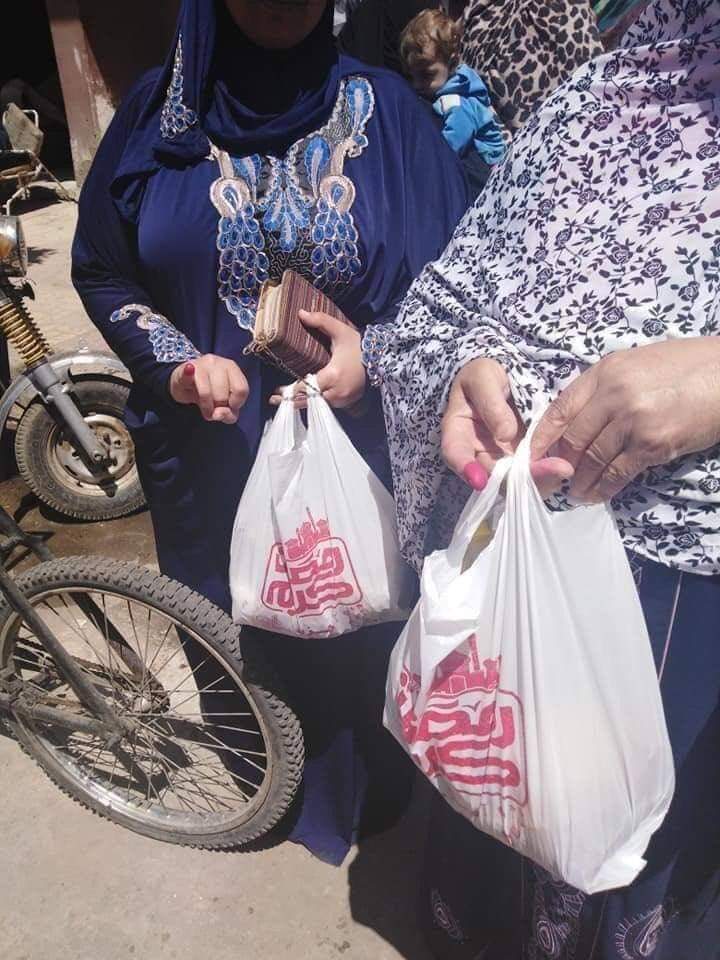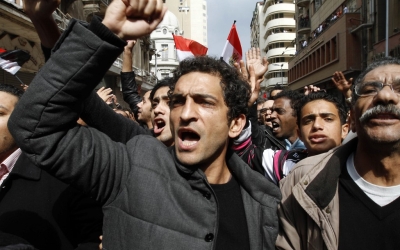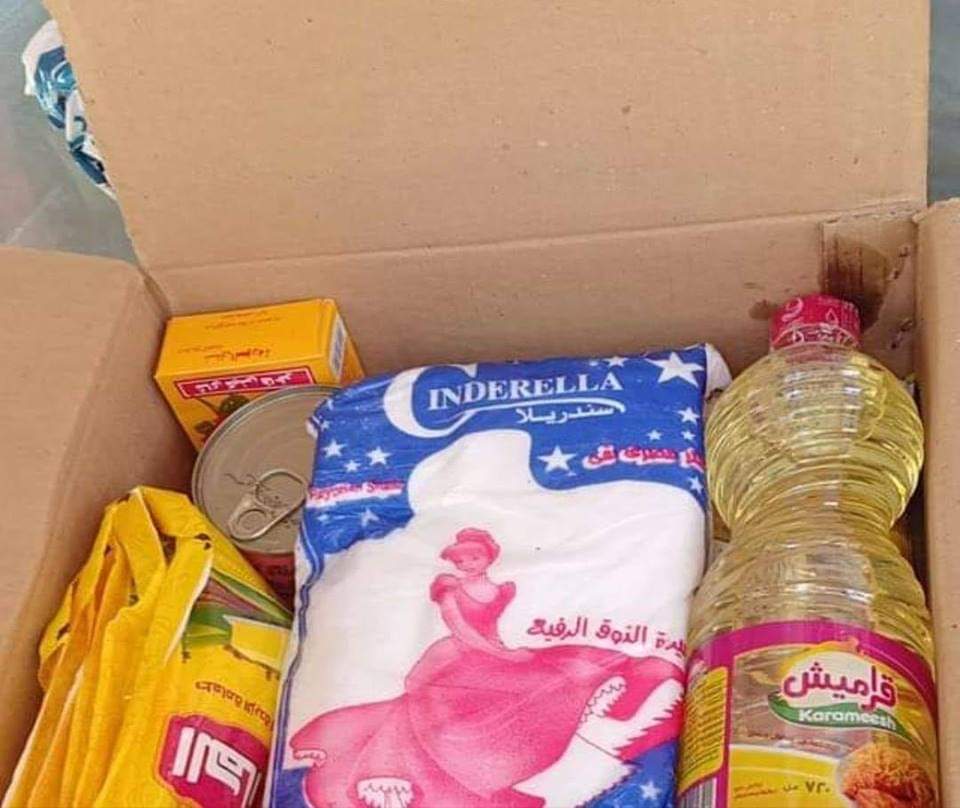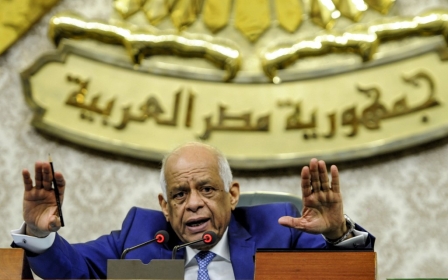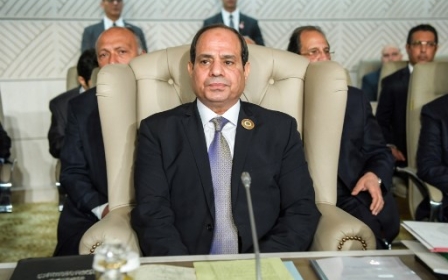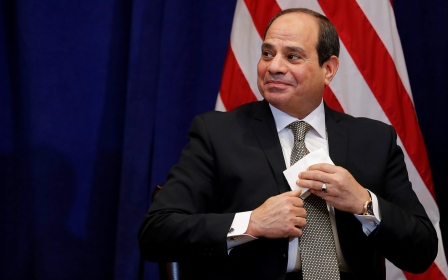Food packages and cash handed out as Egypt votes on Sisi powers for second day
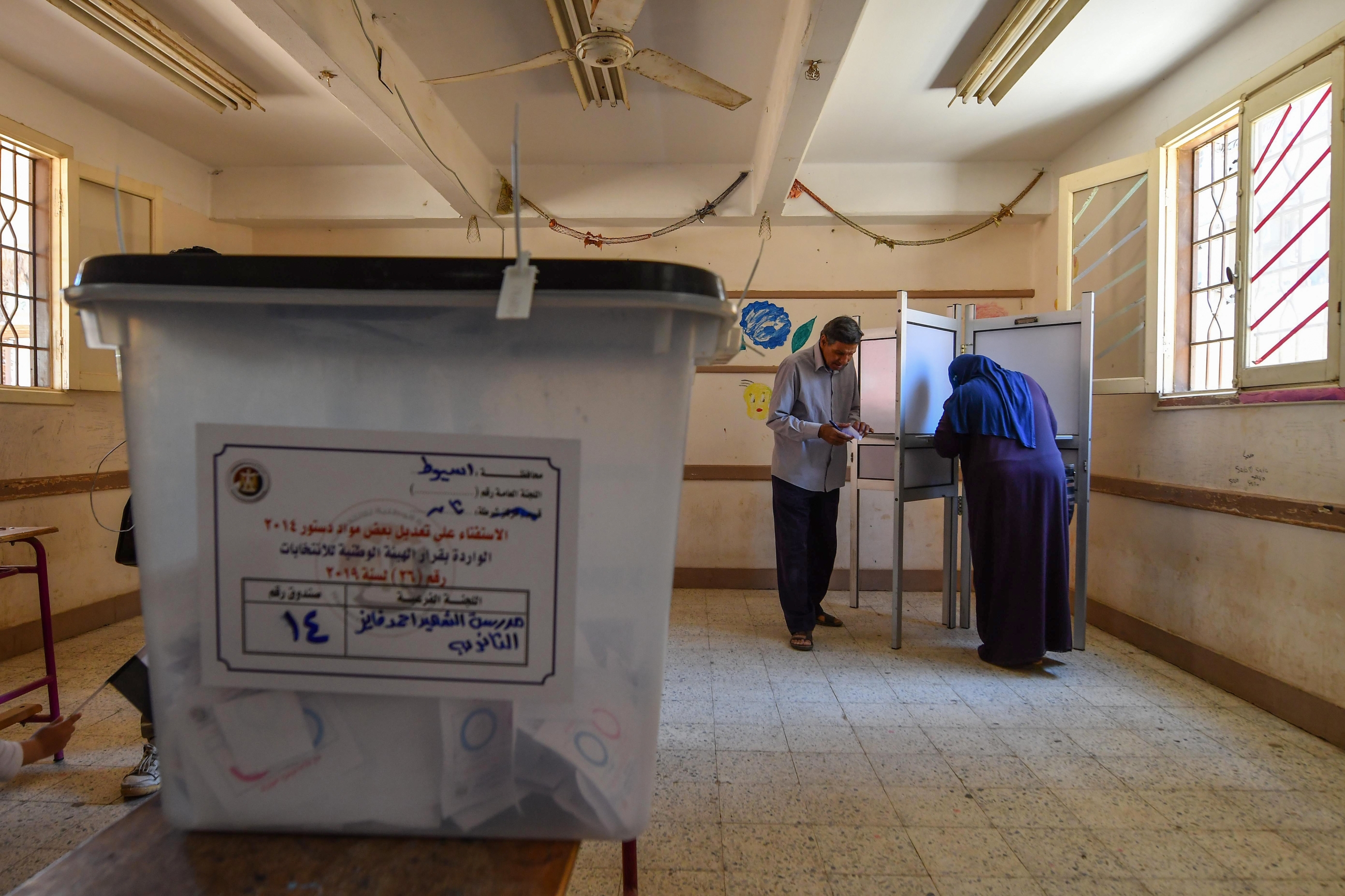
Authorities concerned about a low turnout for a controversial referendum over new powers for President Abdel Fattah el-Sisi and the military have reportedly been handing out food packages to voters, as the polling enters its second day on Sunday.
Middle East Eye witnessed dozens of people in the Egyptian capital being bussed to polling stations by authorities and handed bags of food in return for voting for the amendments to the constitution.
Many basic food items have become scarce and expensive since Sisi introduced harsh austerity measures in 2016.
If approved, as expected, the amendments would extend Sisi's current term and allow him to run for another six-year term in 2024, while also giving him more power over the judiciary and the military a greater role in politics.
New MEE newsletter: Jerusalem Dispatch
Sign up to get the latest insights and analysis on Israel-Palestine, alongside Turkey Unpacked and other MEE newsletters
Outside the polling station in al-Matarawi School in the working-class Cairo neighbourhood of Mataryia, voters from across the area were unloaded from microbuses to cast their vote.
One driver, Ahmed, told MEE that police officers took all the drivers’ licenses and commanded them to gather and transport people to the polling station.
In return, he said the drivers were told, they will receive 300 Egyptian pounds ($17) each and voters will get 150 Egyptian pounds. “They threatened us that they will book us for violations if we didn’t obey,” Ahmed added.
A voter tweets about the contents of a food box handed to him, including pasta, sugar and tea
Ahmed said that he transported 14 passengers, mostly women, from the outskirts of Cairo. “These are needy and impoverished people. Once they heard that they will get money they hopped in,” he said.
The 34-year-old said that he refused to go and vote. “I am proud person and will not sell myself for some food. I don’t blame the people who did this, however.”
'We might as well benefit'
Last Wednesday, the National Election Commission announced that all eligible voters who reside in a place different from the one they are registered in can vote in any polling station as long as they have a valid ID.
One women waiting in a microbus while the others finished voting told Middle East Eye: “In any case he [Sisi] will win the referendum, with us or without us. So we might as will benefit.”
Inside the polling stations, members of the pro-Sisi Nation’s Future Party and from the “Tick the Box” campaign sat down with computers at the place where voters handed in their IDs to receive their number on the electoral list.
'We didn’t read or know anything about the elections. We were told we will get food so we went'
- Shahria, voter
Afterwards, the campaigners gave the voters their IDs back and a card for people to stamp after they vote which can then be traded for a box of food.
Shahria, 43, told MEE that she got a stamped card in the polling station after she cast her vote.
“I then went to a local trader and he gave me a box of food rations of sugar, rice, cooking oil, pasta and a packet of salt,” she said, adding that she was accompanied by six other women who received the same package.
“We didn’t read or know anything about the elections. We were told we will get food so we went,” Shahria, who works as a cleaner, said.
In the district of Shubra, dozens of electricity ministry employees were escorted to the al-Tawfiqia School polling station in government-owned buses.
“The manager told us that attendance will be taken in the polling station and that we had to stay outside the polling station all day and cheer for the amendments,” said Hafsa, one of the employees, who added that they were told anyone who didn’t show up would lose a day’s holiday.
Just down the road from the polling station was a shop selling subsidized food, that had been handing out parcels since Saturday afternoon.
One of the workers there told MEE that policemen and officials from the Cairo governorate asked the shop's owner in the weeks before the referendum to provide 500 boxes of food to be distributed to people voting for the constitutional amendments.
“It is like a form of silent bribe, so the shop owner avoids any trouble with the police,” the worker said, adding that “other traders and big businessmen are the ones who volunteered to donate boxes to be distributed”.
The worker, who wished to remain anonymous, said lots of confrontations had broken out at the shop as people started fighting over the boxes and policemen and campaigners started to take packages for themselves.
MEE witnessed a fight in front of another food outlet in a government-owned youth centre in Shubra. The shop was guarded by armed soldiers, who started yelling and cursing at the crowd that gathered outside to receive the promised parcels.
Safyia, a 34-year-old mother who came to the polling station with her newborn baby, travelled all the way from the Nile Delta governorate of Sharqyia to vote.
“Weeks before the elections, they told us to gather in Cairo to vote and we received our box,” she told MEE. “Now they are yelling and cursing us as if we are begging.”
In Giza’s Talbyia district, MEE spoke to a drug dealer who said that his supplier is known by the police but works as an informant for the authorities.
“They told him that they will stop harassing him if he buys 300 rations boxes and gives them to the government-owned subsidized food outlets so the Nation’s Future people can distribute them,” the dealer, who wished to remain anonymous, said.
MEE contacted the State Information Service asking for a comment on the reported vote buying, but a spokesperson declined to respond.
A large campaign
MEE also spoke to several shopkeepers in the run-up to the election, who said they had been pressured by police into hanging banners encouraging people to vote.
A juice shop owner told MEE officials came to his store and ordered him to “hire a DJ and bring 50 people to the nearest polling station”.
“They said that the 50 should cheer and chant for the constitution for the three days, and that they have to stay there when the TV stations are shooting,” the shopkeeper said, adding that he will be voting against the referendum.
The state has blocked more than 34,000 websites in an attempt to restrict an opposition-led campaign that has been launched in an attempt to rally Egyptians against the amendments, which activists and rights groups say will only further enshrine military rule in the country.
Some 55 million of Egypt's nearly 100 million population are eligible to vote in the referendum, which will be held over three days. The result is expected in the days after Monday's final day of voting.
The constitutional amendments have already been approved by Egypt's parliament, which Amnesty International said showed "the Egyptian government’s contempt for the rights of all people in Egypt".
“These amendments aim to expand military trials for civilians, undermine the independence of the judiciary, and strengthen impunity for human rights violations by members of the security forces, furthering the climate of repression that already exists in the country," Amnesty's deputy director for the Middle East and North Africa, Magdalena Mughrabi, said in a statement.
This article is available in French on Middle East Eye French edition.
Middle East Eye delivers independent and unrivalled coverage and analysis of the Middle East, North Africa and beyond. To learn more about republishing this content and the associated fees, please fill out this form. More about MEE can be found here.


